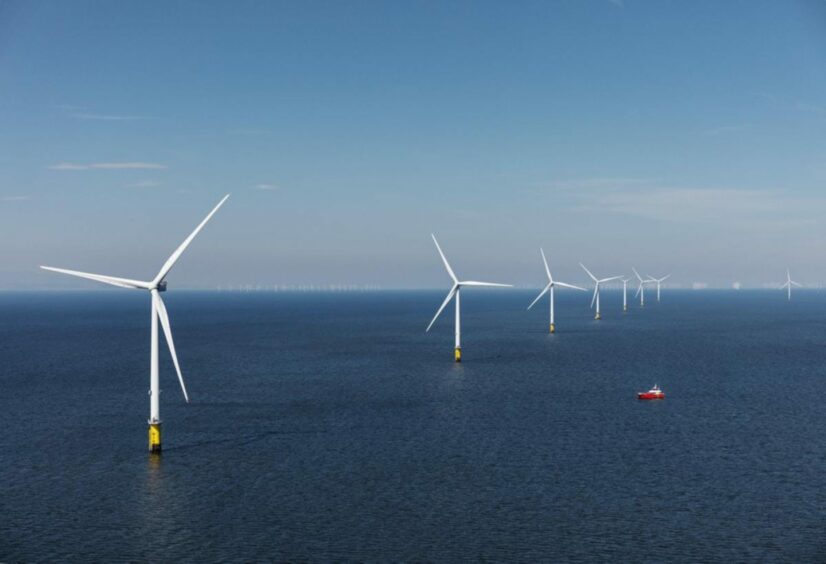
Don’t fritter away Scotland’s ScotWind millions, argues former energy minister Brian Wilson, on the £700m coming to the country’s coffers.
The announcement of winners in the ScotWind licensing round has current importance and historic resonance. Here is an opportunity for the future and to avoid mistakes of the past.
For decades, we heard what a great mistake it was not to set up a North Sea Oil Fund like Norway’s. There are holes in that argument, as it is commonly presented, but there is no doubt the SNP has long been vociferous in making it.
Without dwelling on past history, the two facts which tend to be omitted are (a) the Norwegians did not set up their fund until 1990 and (b) the crucial, earlier differential was not about an Oil Fund but the role of a state oil company.
They created and retained Statoil. The UK Labour government created BNOC which the Tories privatised in the 1980s. If we had retained BNOC, with powers to invest world-wide, then we too – around the same time as the Norwegians – could still have had an oil fund.
Another myth is that there was something called the McCrone Report which was suppressed by the 1974 Labour Government. As Gavin McCrone, then Chief Economic Adviser at the Scottish Office, has wearily pointed out whenever asked there was no suppression. He wrote a briefing memo for incoming Labour ministers who – in McCrone’s words – “quickly took steps to remedy the situation”.
I’m pleased to say Gavin McCrone is still very much with us and has written a new book: “After Brexit; the Economics of Scottish Independence”. In return for slightly pre-empting the embargo, I strongly recommend that it should be read by everyone interested in the facts of a debate that tends to go on and on and on…
But where does ScotWind fit into all of this? Well, McCrone agrees there should have been an Oil Fund and the time to set it up was in the 1980s as North Sea revenues peaked. Instead it was frittered away on the additional costs of unemployment or, as McCrone puts it:
“The oil revenues were used to finance ordinary public expenditure, whereas the argument for putting them in a special fund was so that they could be used to fund either the modernisation of the economy or kept for some other special purpose”.
McCrone also writes: “If the setting up of an oil fund was an opportunity missed, it is now long gone … Scotland has to look to other resources of which it is fortunate to have many, to generate its energy. These also offer major opportunities and policy must now be directed at ensuring that these are used for the benefit of Scotland and her people”.
Put these two statements together and you have the makings of a genuine McCrone Report – or at least a strong pointer towards what needs to be done. We need a Renewables Fund using money generated by ScotWind licences, both now and in the future, to ensure it does not get syphoned into “ordinary public expenditure”.
This decision needs to be taken with great urgency. Just to be absolutely sure, I checked with the Crown Estate about when the £700 million in licence money will fall due. The answer is that it will come to them and then directly to the Scottish Government, cash in bank, in April.
So this is not some hypothetical amount dependent on production levels or fluctuating prices, as was the case with North Sea Oil and Gas. This money could be ring-fenced from day one as a Scottish Renewables Fund to be used exclusively for investment directly related to opportunities created by the ScotWind round and its successors.
As I have regularly pointed out, we need a strategy for renewables investment rather than the hands off approach which delivered so little to date. It will need private and public money. What better signal than for the First Minister to say, straightforwardly, that the £700 million will kick-start a Scottish Renewables Fund for the single purpose of related investment?
That argument has been advanced by figures like Professor Paul de Leeuw, director of RGU’s Energy Transition Institute, who called for a Sovereign Wealth Fund, and Gary Smith of the GMB union. It is also being advocated in the Western Isles where the local authority is saying “give us the £30 million from the three sites in Outer Hebridean waters and we can transform our economy”
In support of that contention, the council leader, Roddie Mackay, quoted Nicola Sturgeon from 2016 when she pledged: “Island communities will receive the full revenues from Crown Estate assets around their shores”. An interesting sub-plot and quite a hard one to wriggle out of. The theory of Crown Estate devolution was that money and powers would be further devolved which, of course, has not happened.
Then listen to Cabinet Secretary Michael Matheson when challenged at Holyrood about the £700 million: “It is funding that we will use, in part, to support our net zero ambitions, and we will then consider how to utilise it across the rest of the Scottish block grant”.
Loosely translated, that sounds like the money being used to finance “ordinary public expenditure” – just like McCrone warned against. Let’s hope SNP Ministers will read the new McCrone Report. This one’s for real and could scarcely be clearer – don’t fritter away Scotland’s Wind.
Brian Wilson is a former UK energy minister.
Recommended for you
